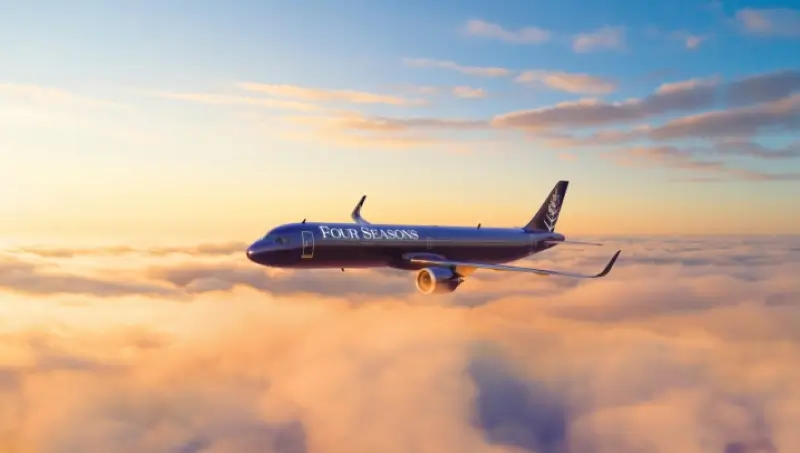
Qantas Group Strategy
Feb 26, 2014

Qantas Group's strategy focuses on enhancing customer experience, operational efficiency, and sustainable growth. The airline aims to reinforce its position as a premium carrier through investments in fleet modernization, digital transformation, and service innovation. By prioritizing safety and environmental sustainability, Qantas is committed to reducing its carbon footprint and achieving net-zero emissions by 2050. The strategy also emphasizes expanding domestic and international networks, improving loyalty programs, and leveraging partnerships to drive revenue growth. Overall, Qantas Group seeks to adapt to evolving market demands while maintaining its reputation for quality and reliability in the aviation industry.
Overview of Qantas Group Strategy
The Qantas Group has a comprehensive strategy aimed at reinforcing its position as a leading airline in the Asia-Pacific region. This strategy encompasses various aspects of the business, including operational efficiency, customer experience, and sustainability. By focusing on these key areas, Qantas aims to enhance its competitive edge and drive long-term growth.
Key Strategic Pillars
Qantas Group's strategy is built on several "key pillars" that guide its operations and decision-making processes:
| Strategic Pillar | Description |
|---|---|
| Operational Efficiency | Streamlining operations to reduce costs and improve service delivery. |
| Customer Experience | Enhancing customer satisfaction through improved services and offerings. |
| Sustainability | Implementing eco-friendly practices and reducing carbon emissions. |
| Diversification | Expanding into new markets and services to mitigate risks. |
Operational Efficiency
One of the primary focuses of the Qantas Group strategy is achieving "operational efficiency". This involves optimizing flight routes, investing in modern aircraft to reduce fuel consumption, and leveraging technology to enhance operational workflows. By improving efficiency, Qantas not only reduces costs but also enhances its "service reliability", leading to increased customer loyalty.
For example, the introduction of the Boeing 787 Dreamliner has allowed Qantas to operate longer routes with lower fuel consumption, thus improving overall operational performance.
Enhancing Customer Experience
"Customer experience" is another cornerstone of Qantas Group's strategy. The airline aims to provide a seamless journey through various initiatives such as:
- Upgrading inflight services and entertainment options.
- Implementing user-friendly digital platforms for booking and customer service.
- Offering personalized experiences tailored to customer preferences.
Qantas has invested significantly in its loyalty program, Qantas Frequent Flyer, which rewards customers with points for their travels, thus encouraging repeat business and fostering a loyal customer base.
Sustainability Initiatives
As part of its commitment to "sustainability", the Qantas Group has set ambitious goals to reduce its carbon footprint. The airline has pledged to achieve net-zero carbon emissions by 2050, implementing various strategies such as:
- Investing in sustainable aviation fuel (SAF).
- Enhancing fuel efficiency through modern fleet upgrades.
- Emphasizing waste reduction and recycling in airport operations.
These initiatives not only align with global sustainability efforts but also resonate with environmentally conscious travelers, enhancing the brand's image and appeal.
Diversification of Services
To mitigate risks associated with market fluctuations, Qantas Group has adopted a strategy of "diversification". This includes expanding its service offerings beyond passenger flights, such as:
- Increasing cargo operations to tap into the growing e-commerce market.
- Offering charter services for business and private clients.
- Entering partnerships with other airlines and travel companies to expand its reach.
By diversifying its portfolio, Qantas can better navigate economic downturns and changing market dynamics, ensuring a more stable revenue stream.
Financial Performance and Future Outlook
The Qantas Group's strategic initiatives have resulted in a positive trend in financial performance. The airline has reported a steady increase in passenger numbers, revenue growth, and improved profitability in recent quarters. The implementation of "cost-saving measures" and a focus on high-demand routes have significantly contributed to this success.
Looking forward, Qantas aims to capitalize on the rebound of international travel post-pandemic. With a robust strategy in place, the airline is well-positioned to enhance its market share and continue its legacy as a premium airline in the region. The focus on "sustainability", customer experience, and operational efficiency will be crucial in navigating future challenges and opportunities.
Conclusion
In summary, the Qantas Group strategy is a multi-faceted approach that emphasizes "operational efficiency", "customer experience", "sustainability", and "diversification". By aligning its operations with these strategic pillars, Qantas is not only preparing for future growth but also ensuring that it remains a competitive player in the global aviation market. The ongoing commitment to enhancing every aspect of the travel experience will be vital in retaining customer loyalty and attracting new travelers.
Related Articles

Explore Thailand: The Best Islands to Visit for Paradise, Adventure, and Relaxation

The Ultimate Guide to the Best Islands in Thailand for Your Next Getaway

Do babies need passports? How to get a passport for a newborn

How to get a U.S. passport fast: here’s how to expedite the process

What is Mobile Passport Control: 5 reasons why you should use it

SENTRI vs. Global Entry: A detailed guide

Do you need a passport to go to the Bahamas? Let’s find out

Do you need a passport to go to Mexico? A detailed guide

Do you need a passport to go to Canada? We got the answer

Do You Need a Passport for a Cruise: An Essential Travel Guide

Booster Seat Requirements: All the Rules to Follow in Your Rental Car

What Are the World’s Most Powerful Passports, and How Does Yours Rank?

How to Take a Passport Photo at Home: A Helpful Guide

You've got to have heart! Southwest's new livery

Your opinion: Should water be free on low cost carriers?

Young women bolder than guys as solo travellers
